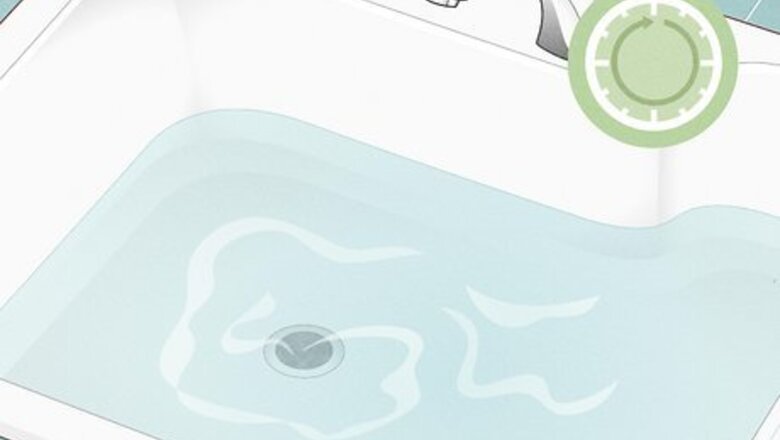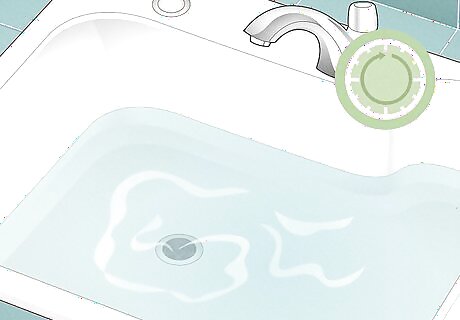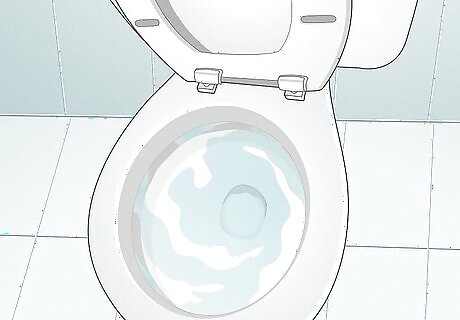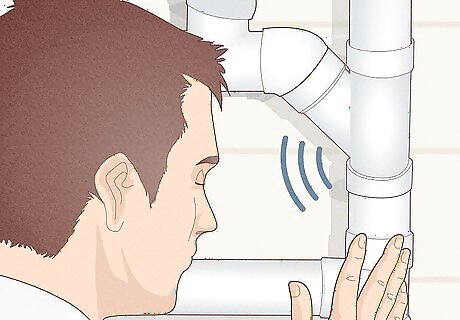
views
Slow drainage

Slow drains usually mean the tank is full or clogged. When you turn on your sink, does the water take more than a minute to drain? If so, your septic tank is probably close to reaching maximum capacity. Try using septic tank-safe drain cleaner to see if anything improves. If nothing changes, your septic tank is probably full.
Weak flushing

Your toilets may be struggling to flush because the system is full. Similar to slow drainage, a weak-flushing toilet could mean a local clog or a full tank. However, if all of the toilets in your home are struggling to flush, it most likely means that your tank is full. You can unclog your septic tank by going in through the inlet pipe.
Gurgling sounds

The sound of gurgling water usually means your pipes are backing up. If you hear gurgling noises coming from your pipes, your tank is most likely full. Take this as an indication that your tank needs to be emptied right away. Most septic tanks need to be emptied every 3 to 5 years. EXPERT TIP David Balkan David Balkan Professional Plumber David Balkan is a Professional Plumber, CEO of Balkan Sewer and Water Main Service, and President of Balkan Sewer and Drain Cleaning. As a hands-on owner of these companies for over 40 years, David is knowledgeable about water service lines, sewers, and drain line issues. David is a Committee Chairman of the Master Plumbers Council and has sat on the Executive Committee of the Sub Surface Plumbers Association of New York for over 30 years. His knowledge and solution-oriented approach contributed to Balkan Sewer and Water Main Service being the largest and most trusted service in New York City and the recipient of the 2017 Angie’s List Super Service Award. David Balkan David Balkan Professional Plumber Avoid letting grease enter your septic systems. Don't pour grease down drains and use plant-based soaps in septic tanks. Grease coats your pipes and tanks, slowing drainage over time. Make sure to get septic tanks professionally pumped and treated regularly.
Bad odors

Bad smells are usually coming from the septic tank itself. Head over to your drain field, or the part of your yard that’s directly above your septic tank. If you get a whiff of a bad, sewage-like odor, it means your septic tank is probably full. When a septic tank isn’t full, you shouldn’t be able to smell anything at all.
Standing water over the septic tank

Pooling water usually means the tank is overflowing. If you head out to your drain field and notice a pool of standing water, your septic tank is full. It’s overflowing and emptying itself before you have a chance to.
Lush grass above the tank

Especially healthy grass could mean your tank is leaking. While it sounds a little silly, if the grass directly above your septic tank looks super healthy or lush, your septic tank is probably full. The extra water and nutrients from the tank are feeding your lawn, which can happen even before water starts pooling. Your lawn should look the same throughout, not be healthier in one particular spot.
Sewage backup in your home

Sewage in the toilets or showers means your tank is full. A sewage backup happens because the waste water can’t drain away from your home. When your tank is full, there’s a chance that the sewage could back up into your sinks, toilets, or showers. If you’re experiencing a sewage backup, call a professional right away. Sewage is a biohazard, and it can make you and your family very sick. Sewage backups can also be caused by clogs or blockages within the tank or the pipes.
Algae blooms in nearby water

Your tank may drain into nearby ponds or lakes, leading to algae. Algae is caused by an excess of nutrients, which can happen if your tank is leaking. If your septic tank is upstream from any ponds or lakes and you notice an influx of algae, your tank may be too full.




















Comments
0 comment